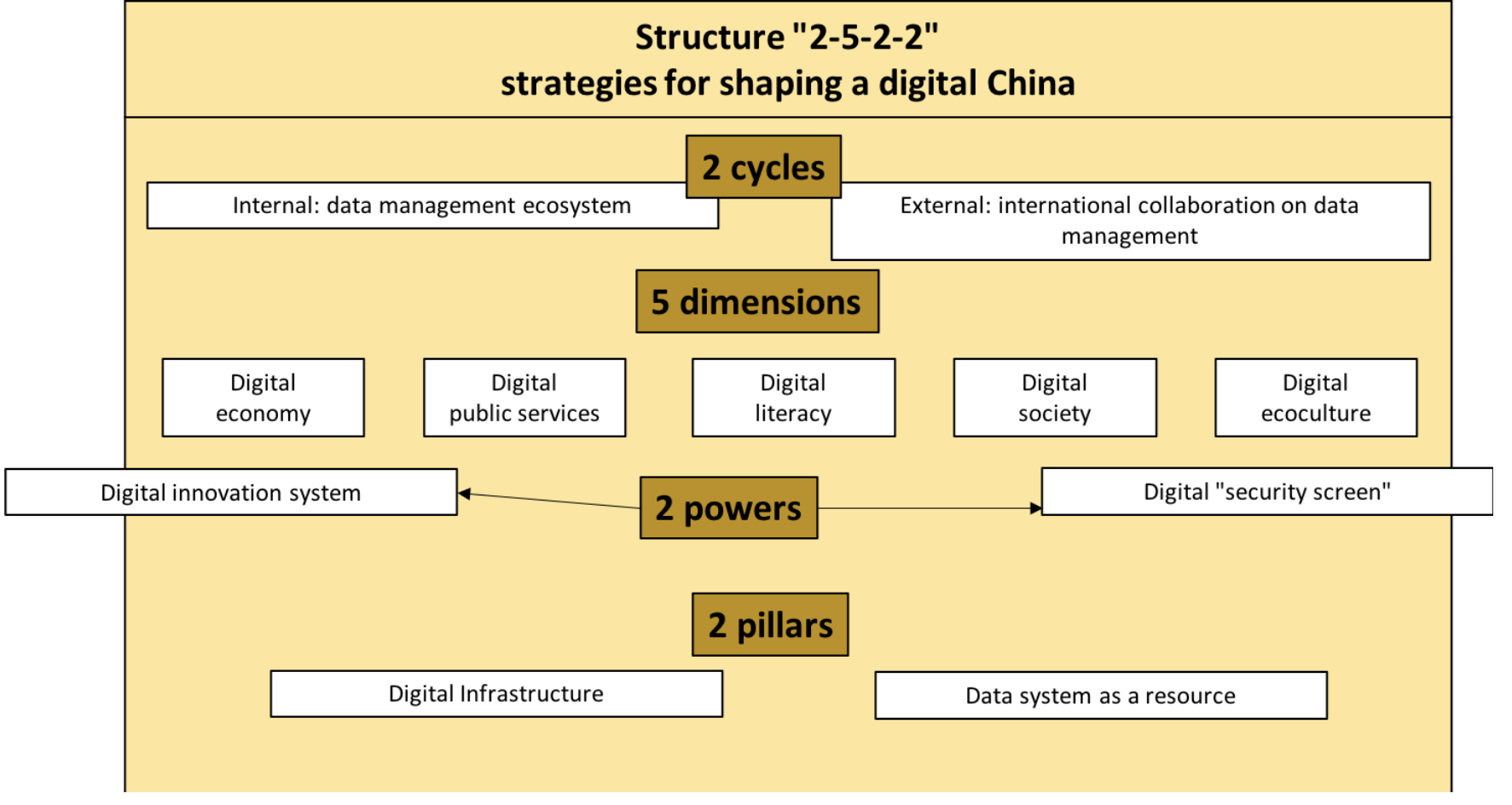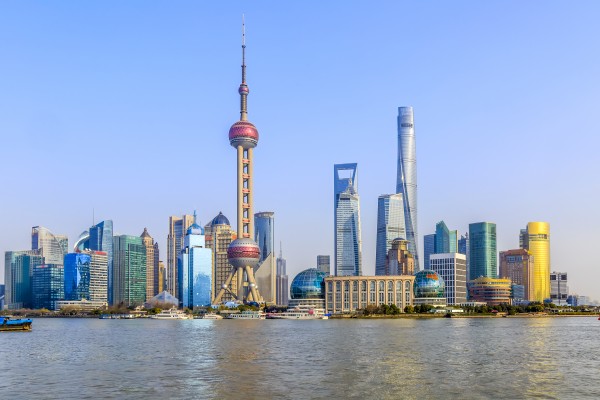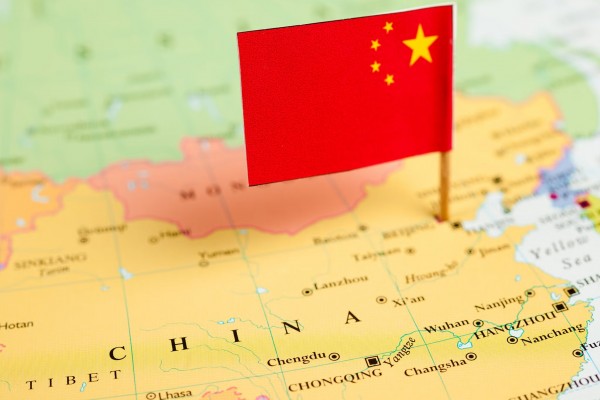Review № 16 of Chinese Antitrust News from the Experts of the BRICS Competition Centre
- Luo Wen on fair competition and regulation of digital platforms
- Fair competition review guide updated
- The new version of the Anti-Unfair Competition Law was not included in the plan for consideration in the first reading for 2023
- SAMR begins work to streamline corporate data
- The report on the formation of "digital China" (2022) is published
- Beijing publishes White Paper on Web 3.0
- Anticompetitive agreements in the field of pharmaceuticals
- British Chamber of Commerce China policy brief
- Beijing appoints 39 platforms as technology development partners
- Alibaba denies layoff rumors
- China Fair Competition Week Title Theme Contest
- 13 Demonstration Digital Market Regulation Zones Designated
- The first provinces connected to the national computer network
- Elon Musk met with Chinese officials
- Guidelines for registering contracts for the export of personal data
- Seminar on improving the business cyber environment
- PaRR: The Ministry of Justice of China stopped accepting applications for the transfer of evidence abroad
Luo Wen on fair competition and regulation of digital platforms
In a long interview with reporters, the head of SAMR, Luo Wen, called the active protection of fair competition one of the important successes of China's economic development. According to him, at the current stage, a key transition is taking place in relation to competition: it is important not only to have it, but also how well it is provided. The main areas of work are the formation of a solid legislative framework, the “normalization” of regulation (transformation from an exceptional measure into the norm), the fight against local protectionism and administrative monopoly, as well as the creation of a favorable competitive environment . At the same time, for the healthy development of Internet platforms, the regulator is taking the following measures:
- creates a stable, transparent and predictable regulatory environment;
- develops the regulatory apparatus and activates interdepartmental cooperation;
- develops compliance assessment indicators and conducts control measures;
- stimulates digitalization and increases regulatory smart capacities;
- promotes the development of the online environment and supports the innovative development of digital companies.
Source: SAMR
Fair competition review guide updated
China has a system of fair competition review - a procedure for checking existing and proposed laws, regulations, administrative decisions, etc. for the absence of provisions that impede the development of competition. In order to improve the efficiency of this system, the authorities encourage the involvement of third parties to assess how correctly this verification is carried out. A guide to organizing an independent assessment of the fair competition review appeared in 2019, and the other day it was published in a new edition. The changes affected the list of competent organizations, evaluation parameters and the content of expert opinions.
The new version of the Anti-Unfair Competition Law was not included in the plan for consideration in the first reading for 2023
The Standing Committee of the National People's Congress of China (NPC PC) has published a legislative work plan for 2023, listing 18 new bills for first reading and 17 bills that have already been considered and are subject to further discussion this year. The new version of the Anti-Unfair Competition Law was not included in any of the lists and is listed as one of the bills tentatively scheduled for consideration. The updated project was published by SAMR in November 2022.
A comparative table of the current and proposed versions of the law in Russian is available on the website of the BRICS Competition Centre.
Source: China News
SAMR begins work to streamline corporate data
In April of this year, SAMR launched work to streamline business data. The campaign, which will last a year and a half, is aimed at improving the quality of information on the creditworthiness of market entities and promoting the formation of a “digital government”. Uniform standards for data entry into the public system of creditworthiness, their modification and publication in the public domain will be developed. The regulator will also strengthen control over the verification of the completeness and correctness of the entered data, automate and “smartize” quality control. At the same time, the use of big data and cloud computing technologies is encouraged to intensify quality assurance.
Source: SAMR
The report on the formation of "digital China" (2022) is published
The Cyberspace Administration of China has published a report on the progress in building a digital power over the past year. There is a large-scale development of digital infrastructure and a data system as a resource, as well as a steady growth of the digital economy: in 2022, its volume reached $ 7.25 trillion, which is 41.5% of GDP and puts China in second place in the world. Separately, serious challenges and ethical problems that may be caused by the development and application of generative AI, quantum computing and other advanced solutions are noted: leakage of personal data, abuse of technology, imposition of other people's values.

Beijing publishes White Paper on Web 3.0
The Beijing Committee for Science and Technology, together with the Zhongguancun Technopark, published a white paper on the innovative development of Web 3.0, a decentralized Internet powered by blockchain. The authors state that at this stage, Web 3.0 is facing challenges such as a lack of qualified personnel, the absence of integral supply chains, and undeveloped legislation. According to the White Paper, the Web 3.0 framework is supported by four elements: infrastructure, interactive terminals, platform tools, and software. Infrastructure refers to technologies such as AI, blockchain, computing chips, communication networks. Platforms, on the other hand, provide a technological support and a digitalized environment for the implementation of actions in the virtual space.
Anticompetitive agreements in the field of pharmaceuticals
Pharmaceutical company Grand Pharma was fined for an anti-competitive agreement with Wuhan Healcare to restrict sales of APIs for the production of norepinephrine and epinephrine and abuse of dominance - the total amount of recovery from violators was $45 million. earnings) became the tenth largest in China assigned to any company.
In addition, Zizhu Pharm received a $1.8 million fine for an anti-competitive agreement to fix the resale price and set a floor price for levonorgestrel. China pays great attention to the antitrust control of the pharmaceutical sector as critical to the well-being of the population: since February 2023, thematic antitrust campaigns have been carried out by 30 provincial and municipal departments throughout the country.
British Chamber of Commerce China policy brief
In a policy brief, the British Chamber of Commerce in China noted that to remain a key investment destination, China needs to re-engage with entrepreneurs. The authors suggested the following steps:
- Create a more welcoming environment for business and foreign investment, with clear timelines for the introduction of relevant policies; address long-term market concerns related to intellectual property and data security;
- Introduce measures to improve transparency and promote competition; ensure a level playing field for all market players and eliminate differences in such rules for public and private Chinese enterprises and international businesses;
- Provide clarifications regarding regulations to reduce uncertainty in ensuring compliance;
- Ensure an open and inclusive consultation process in the development and implementation of policies;
- Establish clear and multiple channels of communication [with authorities] at all levels.
Source: British Chamber of Commerce in China
Beijing appoints 39 platforms as technology development partners
Beijing has designated 39 key companies from 5 industries (algorithms, data, models, applications, and investments) as partners in the municipal general artificial intelligence (AGI) development program. The list includes, in particular, Alibaba Cloud, Baidu, Alibaba Marketplace, 360 Security Technology, Zhihu Q&A Marketplace, etc. The aim of the partnership program is to achieve high-quality development of the AGI industry by 2025 with a ecosystem.
In parallel, Alibaba Group announced deepening cooperation with the authorities of the city of Tianjin - one of the four cities of central subordination in China, along with Beijing, Shanghai and Chongqing. The parties will work together to develop high-tech sectors - AI, cloud computing, big data. Alibaba Group will provide municipal governments with computing resources "with increased efficiency and at a lower cost." For its part, Tianjin promised to develop conditions for innovation and create a favorable business environment.
Source: Baijiahao
Alibaba denies layoff rumors
Alibaba said it plans to hire 15,000 new employees this year, including 3,000 graduates. Earlier, the media reported on future large-scale - up to 25% - cuts in the divisions of the corporation, but Alibaba called it rumors. As the statement says, every year someone comes and someone leaves the company - the movement of talent is common to all companies, and in Alibaba it goes on as usual: “We have never stopped both innovating and innovating, and recruiting and nurturing exceptional professionals.
China Fair Competition Week Title Theme Contest
SAMR has announced a contest for the best slogan (title theme) for China Fair Competition Education Week. The slogan should be inspiring, short and concise (≈8-15 words), reinforce the value of fair competition and its role in China's high-quality development. Applications are accepted until June 10th. Fair Competition Week events will take place in autumn. Last year the Week was held under the slogan “Greater Single Market. Fair competition of the future.
Source: SAMR
13 Demonstration Digital Market Regulation Zones Designated
13 zones, including Beijing's Haidian District, Inner Mongolia's Bayan Nur City, Shanghai's Changning District, Zhejiang Province's Hangzhou, and others, have been designated as demonstration zones for regulating and serving digital markets. These are special territories established by SAMR with a developed management system, developed regulation and high innovative capacities, capable of playing a leading and exemplary role. At the request of the regulator in such areas, it is necessary to vigorously promote the qualitative development of the digital economy, to give equal importance to development and regulation, to strengthen the legal framework, forming a reproducible and accessible experience.
Source: SAMR
The first provinces connected to the national computer network
The first data centers in Guizhou, Sichuan and other provinces were officially connected to the Chinese national computer network (China Computing NET, C2NET). The network was developed by the Shenzhen Pengcheng Laboratory under the leadership of the competent government departments and was launched in June 2022. Its concept implies "the creation of a national computer network, built by analogy with telecommunications networks and operated by analogy with the Internet, so that users have the same access to computing services as they have to electricity." The total computing performance of the network is more than 3 exaflops (more than 3 quintillion operations per second): for comparison, the maximum performance of the best supercomputer in the world - the American Frontier system - is no more than 1.2 exaflops.
Sources: Baijiahao, Baijiahao, SCMP
Elon Musk met with Chinese officials
For the first time in three years, Elon Musk visited China. At a meeting with Chinese Foreign Minister Qin Gang, he noted the industriousness and wisdom of the Chinese people. In his opinion, US-Chinese interests are tightly intertwined and inseparable from each other, like Siamese twins. Musk protested the "gap" between China and the United States and a desire to expand his Chinese business.
Qin Gang confirmed China's intention to strengthen external openness, create a legitimate and internationalized business environment for Tesla and other companies from all over the world. He likened Sino-US relations to driving a Tesla car: you need to steer in the right direction, slow down in time, avoid dangerous driving, and use the gas pedal correctly. During the visit, Musk also met with the Minister of Commerce and the Minister of Industry and Informatization.
By holding meetings with representatives of large international businesses, China demonstrates its openness and intention to improve the business environment. Apple CEO Tim Cook visited the country in March, followed by Starbucks CEO Laxman Narasimhan, JPMorgan Chase CEO Jamie Dimon and Jardine Matheson Executive Chairman Ben Keswick in May.
Source: Gov.cn
Guidelines for registering contracts for the export of personal data
The Cyberspace Administration of China has published the first edition of guidelines for the registration of personal data export contracts. When concluding standard agreements on the transfer of personal data abroad, operators are required to register such documents within 10 days after the entry into force of the agreement - the department reviews the agreement within 15 days and either approves it or reports the reason for the refusal.
Source: CAC
Seminar on improving the business cyber environment
The Cyberspace Department of the CPC Central Committee held a workshop for enterprises on improving the business environment in cyberspace. The event noted that this is an urgent need to ensure the stability of production and supply chains, protect the security of China's industry and economy, and maintain and enhance international competitiveness. The authorities noted the importance of promptly identifying and eliminating online information that harms the reputation of companies and violates their interests. To do this, among other things, it is necessary to organize accessible channels for complaints about violation of rights on the Internet.
Earlier, as part of the campaign to “clean up” the Internet (“Qinglan”), the Cyberspace Administration of China instructed local departments to conduct corrective conversations with the largest platforms - Baidu, Sina Weibo, Douyu, Douban, etc. As the department concluded, they did not fulfill their obligations as subjects of the platform economy: unscrupulously monitored the published information and distributed content related to pornography, superstition, prostitution and gambling. The administration demanded that all violations be eliminated and violating accounts be fined. In particular, the regulator sent a working group to the Douyu video service office - representatives will personally control the correction process within a month.
PaRR: The Ministry of Justice of China stopped accepting applications for the transfer of evidence abroad
According to PaRR portal sources, the Ministry of Justice of China has stopped accepting applications from companies for cross-border transfer of evidence. Such a measure puts Chinese companies in a difficult position: on the one hand, by transferring evidence without permission, they risk violating the laws “On Data Security” (Article 36) and “On the Protection of Personal Data” (Article 41), and on the other hand, delays hinder cross-border litigation.
Source: PaRR




